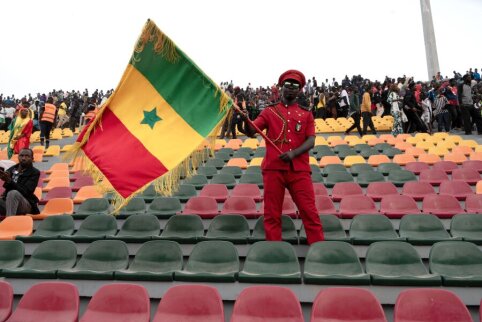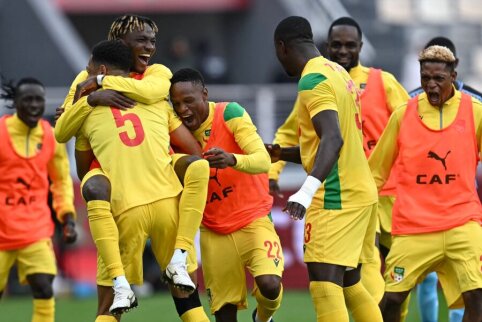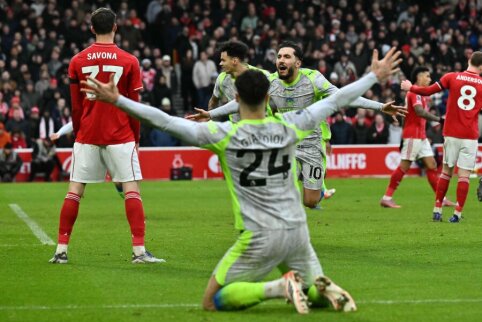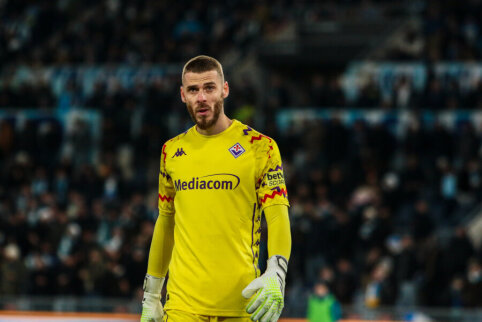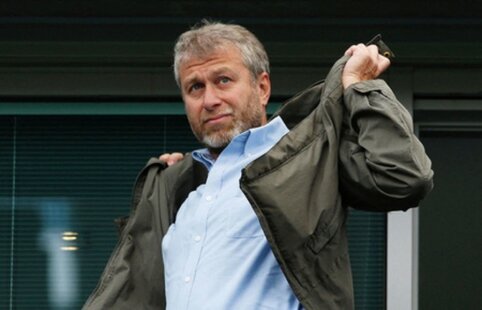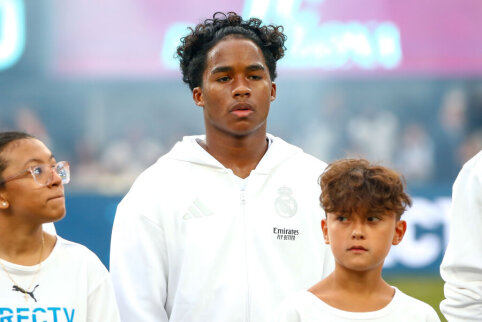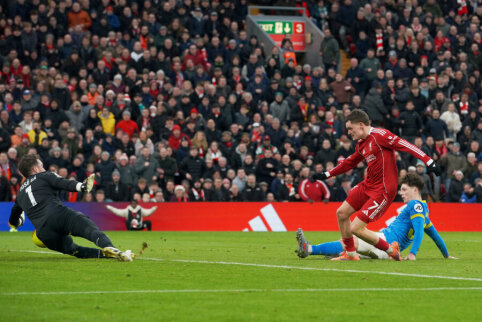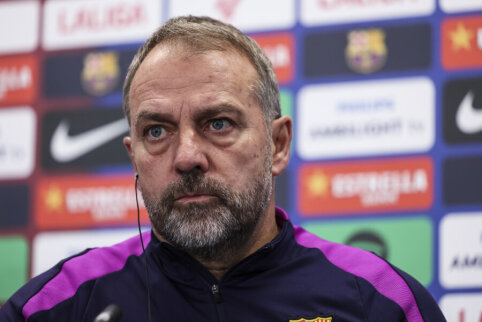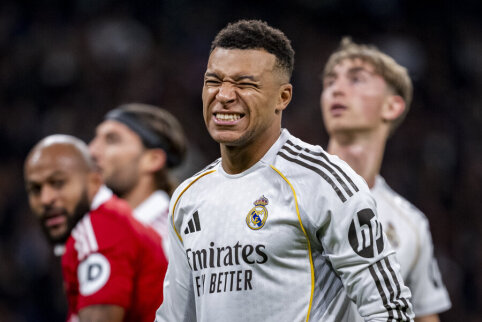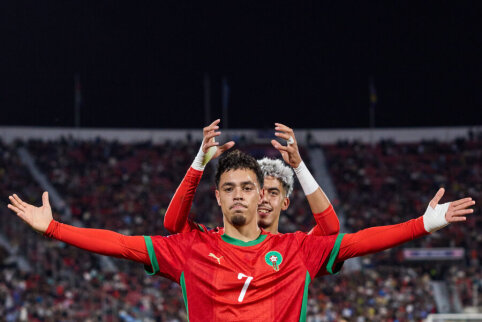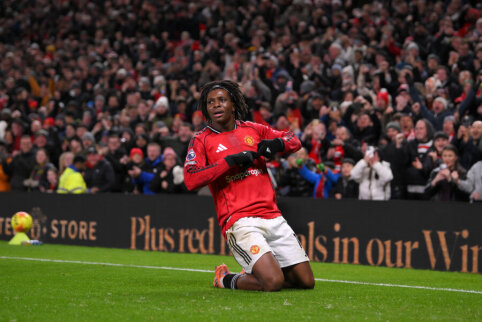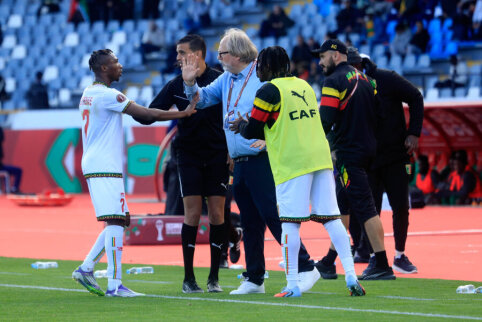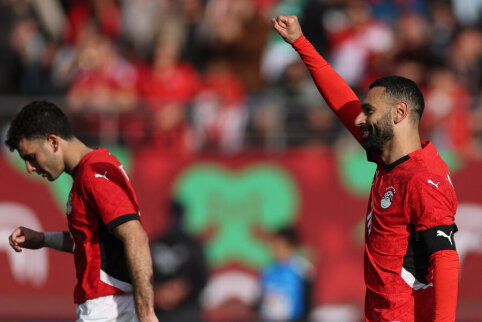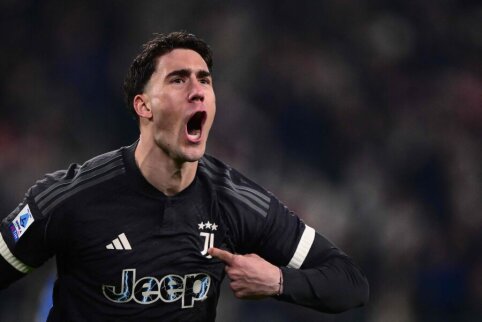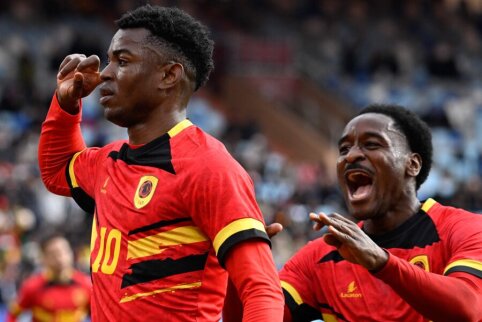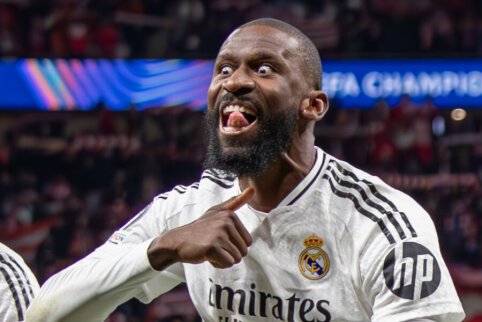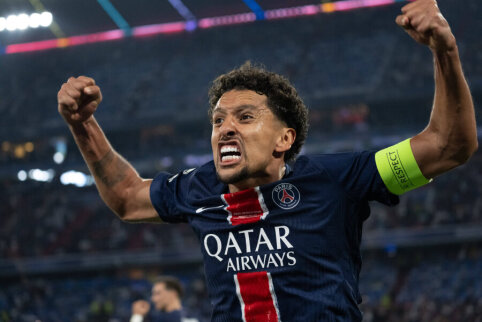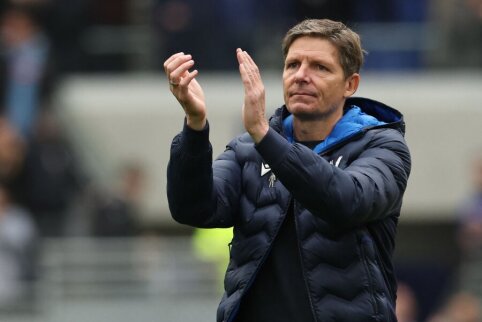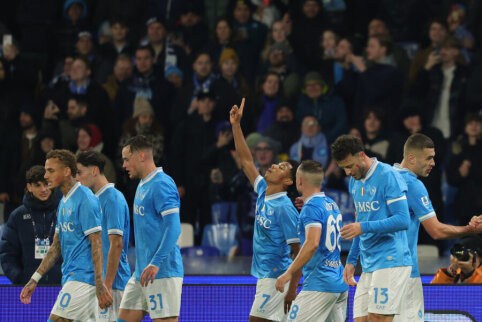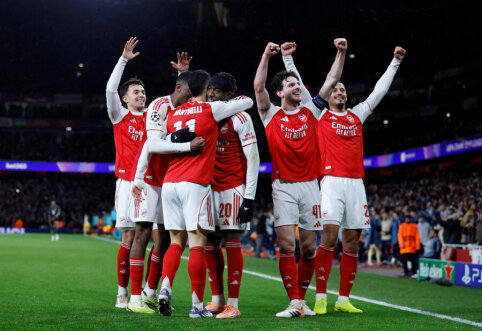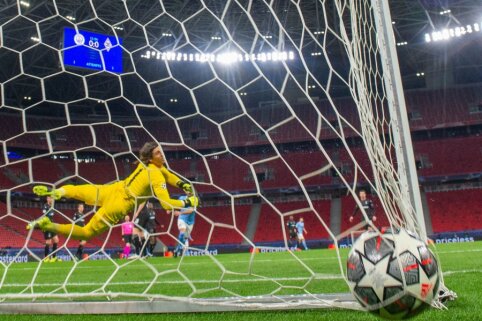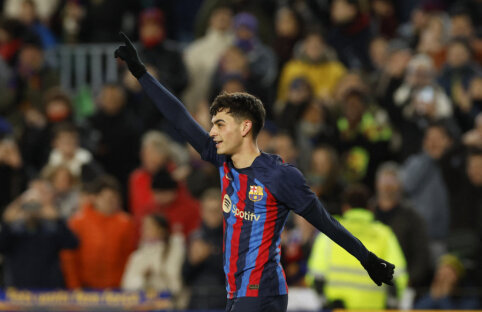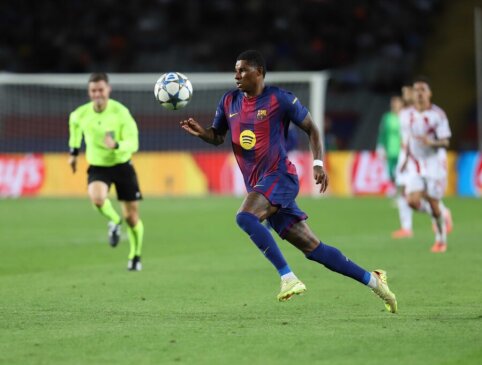 © EuroFootball.com
© EuroFootball.com
Before one of the most important EURO 2012 qualifying matches with the Liechtenstein team, the captain of the Lithuanian national football team, Tomas Danilevičius, spoke not only about football, but also about the team's friends, Lithuanian bacon, and what happens inside each player when they stand on the "green square."
- Tell us a little about the collective of which you are the leader.
- We are a group of good friends. The core of our team has been established for a long time - we have been playing together for many years. We have gone through fire and water with many - both on the field and off the field. We also interact with many families. We know when each other's child's first tooth grew, when someone was sick, and so on.
We are not only teammates but also life friends with many. For example, Marius and I go on vacation together with our families - and our children get along, our wives never seem to argue. Marius and I make sure to call each other several times a week to chat about anything or share a new joke.
In the national team, young guys join and naturally integrate into the team. We welcome everyone equally, each person is different and complements the team in their own way. It's not like the younger ones come and kick balls, carry goals, while we sit back and watch.
There is a really good atmosphere in the team - it's easy to run an extra mile for a friend, even if you are tired. I think this is very important for team results, maybe that's why the national team's results have really improved recently.
- Like in any team, people naturally take on roles. How is it in the Lithuanian national team?
- Of course, there are natural leaders - Marius Stankevičius, Andrius Skerla, Deividas Šemberas. We listen to them, come to seek advice. Sometimes these are very personal, life problems.
For example, Saulius Mikoliūnas' kid can't sleep. What to do? I myself have two girls who didn't sleep after their first year of birth. So, we share experiences, what to do, what my wife and I did.
The same Mikoliūnas is like the team "joker". He always has a joke on the tip of his tongue, always saying something. A funny guy, very positive.
Of course, there are quieter ones. For example, Mindaugas Panka. He is more calm, less heard both on the field and off it. But we all accept him as he is - he quietly does his job and does it well.
- Have you come up with nicknames for everyone?
- Well... everyone knows that Skerla is "Voras" (Spider) without even needing a nickname. Others are more based on last names - Šemba, Stankė, Danila.
Klimavičius is "Niukas," but you need to ask the Panevėžys guys why. Savėnas is "Boselis," also from the days of Panevėžys. Apparently, when he was a captain, that's when he got the nickname.
- More than ten years in the national team - has the menu changed?
- Pasta and chicken, rice... and again pasta. And not only in the national team, but also at home, in the club: chicken, pasta, rice, fish, pasta and chicken. It seems that nothing else tastes good anymore. Sometimes you arrive - and there are potatoes. It seems, how will you eat that.
However, of course, there are days when you go to McDonald's, or your wife prepares something more. But it's not like I can't live without bacon...
It's not like - I'll go home, to my mom's, and gorge on bacon, pickled cucumbers, cold beet soup... mmmm.... It's not like if there's a gap, you have to fill it with food.
We certainly don't run to the store and don't hide to eat chips or chocolate. You just get used to that pasta diet. Although of course, there are exceptions. For example, the Česnauskas brothers can't live without chocolate - they are used to it, they eat it, and that's it.
- How do you prepare for matches?
- We prepare differently for each match. For example, yesterday we had two training sessions on the field, today we will have a video review. Then the coach will start assigning tasks to each player. Depending on the team, we will discuss how to attack, how to defend - what the coach wants from us. We will discuss each player in the team: who is fast, who is slow, who helps more in defense or attack... how many come to the corner, who throws the ball high, who throws it low...
- How much of these discussions stay in your head when you run out onto the field?
- These preparations are very necessary. You feel much stronger when you are prepared in advance, when you have analyzed the opponent's game system.
The coach gives you direction, and you try to implement it on the field. But a lot of things adjust on the field - it could be hot, cold, wet, the ball could be "faster," or "slower"... every game is different.
Also, we analyze previous matches. And the opponent's team plays one way with some, another way with others, and with us, they might show something new.
- How do those few seconds before the match look like, do you have a ritual?
- Since ancient times, we sit in the dressing room, gather for a few seconds before going out onto the field. It has always been like that. Before going out onto the field, this focus lasts about 10 seconds. Then you forget everything: anyone thinking about the upcoming match, anyone praying - these seconds are for each one to be with themselves.
- And on the field? Do you hear the coach, the audience?
- Everyone is different, but I, for example, during the match, almost hear nothing. You are so focused on that green square that you don't understand what's happening outside - you don't see or hear. You are focused on the game, your tasks.
Of course, there are moments when the game stops, and you feel like all sound has been turned off.
- How much can the team captain help his teammates?
- I don't think only the captain is important. Of course, you try to say something, calm down, or just encourage when needed. But there are other leaders - everyone looks out for each other.
